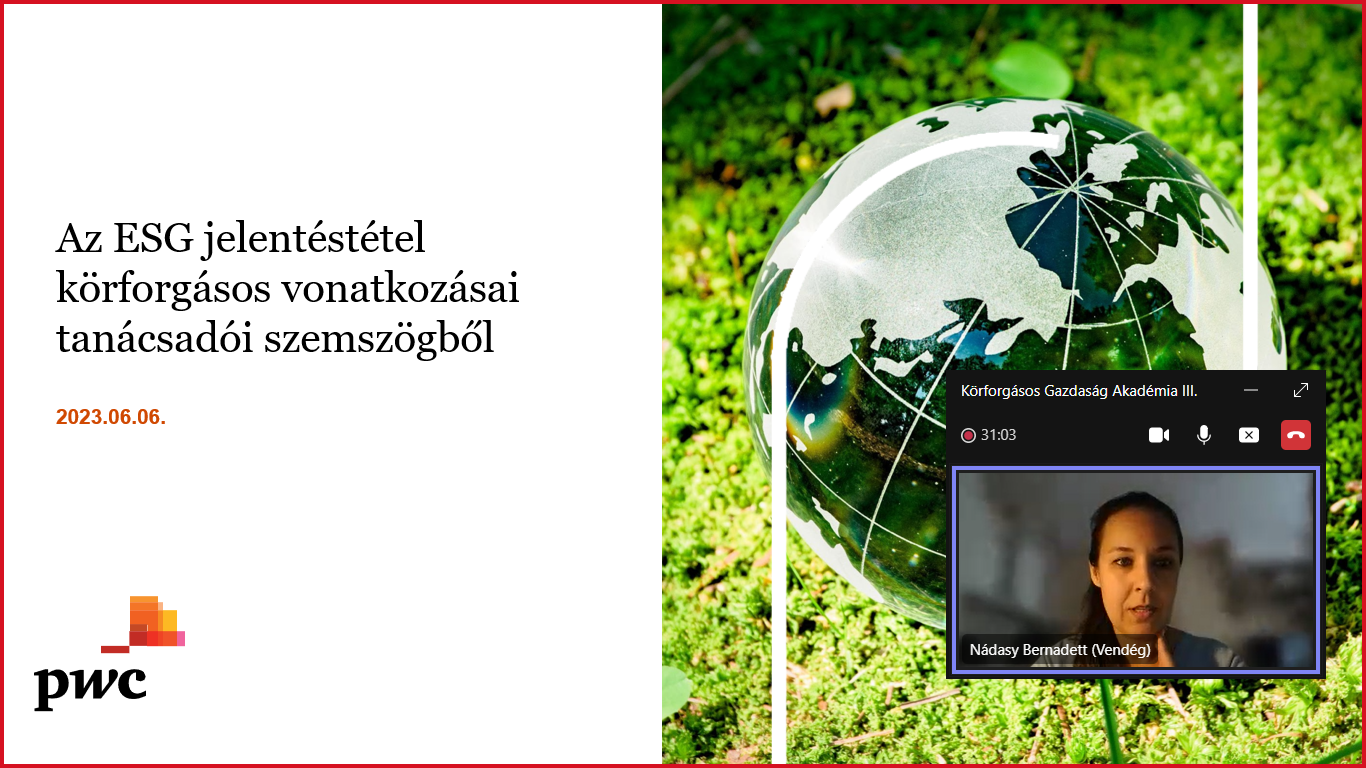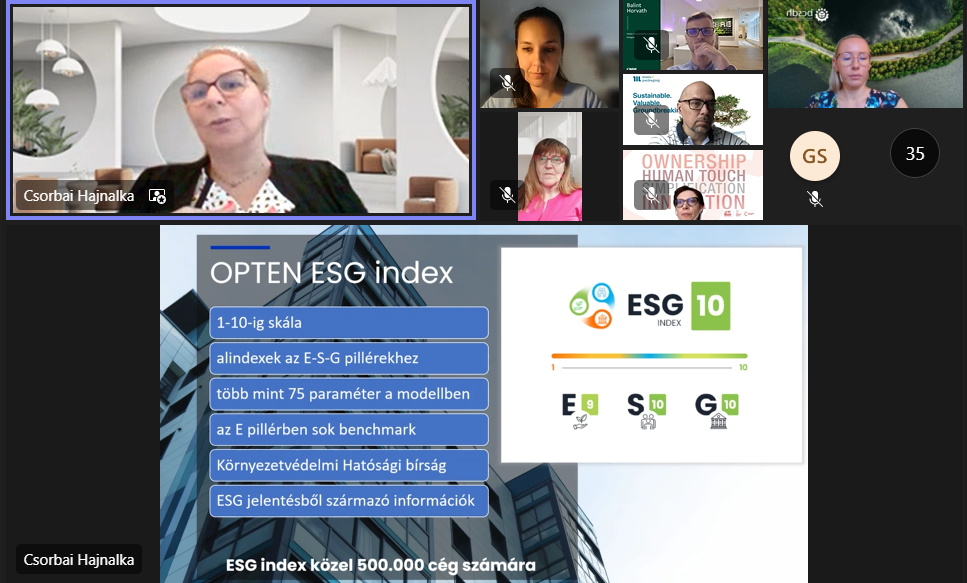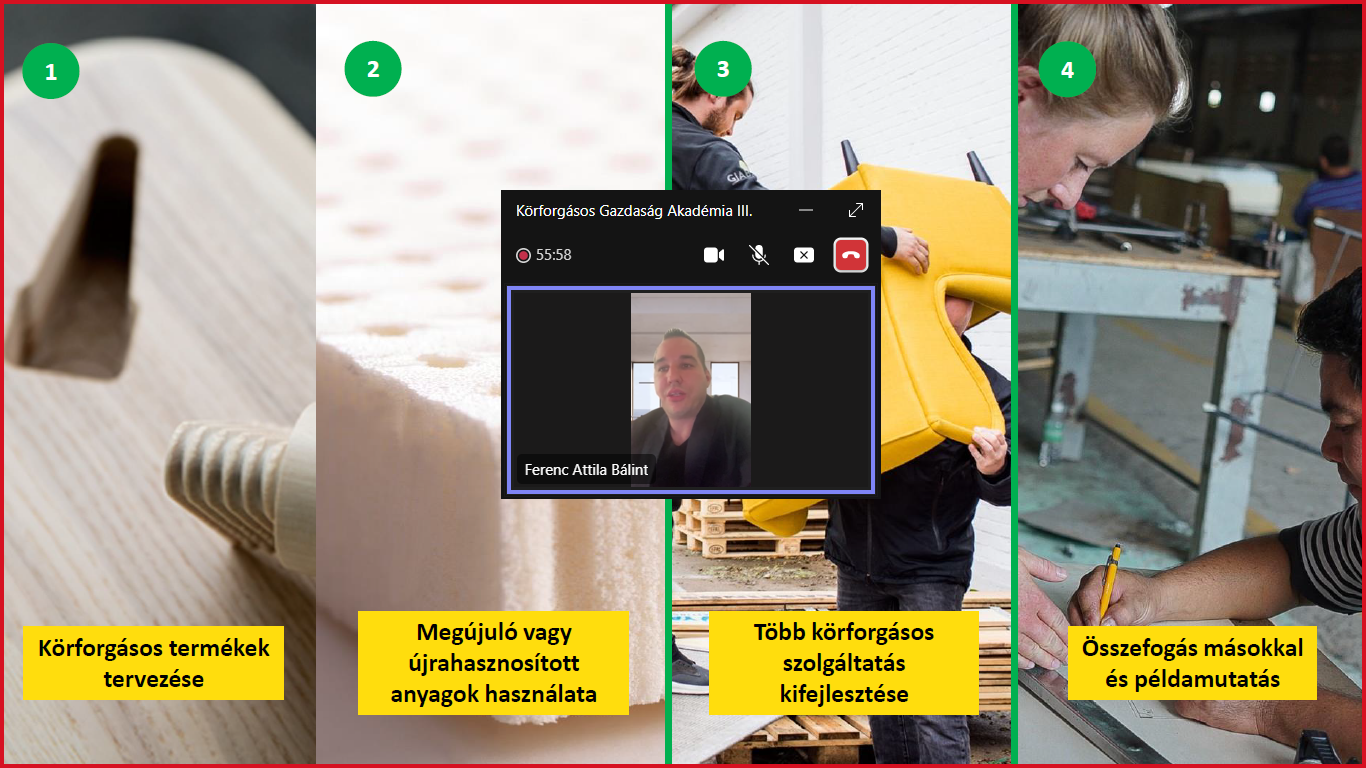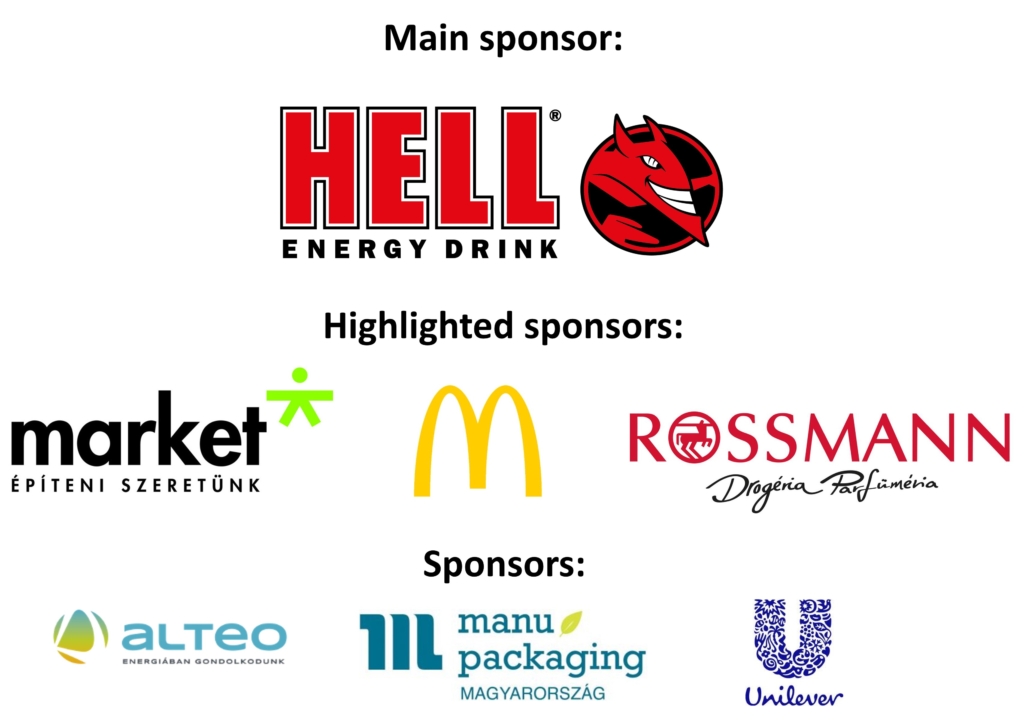What is the role of the circular economy in ESG reporting? – The Circular Economy Academy has concluded
What role does the circular economy play in ESG reporting? What circular economy indicators should companies examine during reporting? On June 6th, 2023, during the closing webinar of the Circular Economy Academy, with more than 35 participants and three corporate presenters, we explored these questions from a consultancy perspective, data collection standpoint, and through a corporate best practice.
Representing the consultancy perspective was Bernadett Nádasy, the Head of ESG and Sustainability Advisory at PwC Hungary. She presented the consultancy tasks that arise concerning the circular economy. These tasks include traditional consultancy duties (financial, strategic, operational questions), tax-related matters (waste import-export), legal and regulatory concerns (extended producer responsibility, take-back obligations, environmental product fees), as well as sustainability reporting and audits. She highlighted the circular economy-related indicators that will appear in the forthcoming CSRD regulations. While the development of these indicators is still ongoing, they will impose reporting obligations on companies. These indicators will encompass topics such as resource consumption and the integration of the circular economy into the business model, procedures that enable the identification of resource usage risks and impacts, formulation of measurable goals, and financial opportunities related to resource usage and the circular economy outside the scope of taxonomy regulation.

Joining this presentation was Dr. Hajnalka Csorbai, the Director of Strategy at OPTEN Informatikai Kft. She introduced the ESG Index developed by OPTEN, including the circular economy indicators it contains. Based on over 75 parameters, the index quantifies a company’s ESG level with an index score ranging from 1 to 10. She emphasized that there are many benchmarks for the Environmental pillar, including circular economy-related aspects. However, due to a lack of individualized data, it doesn’t provide a comprehensive overview of where each company stands. To address this, data collection and mapping of the supply chain are necessary. In pursuit of this, Opten has launched an ESG questionnaire, featuring 11 questions related to the circular economy out of a total of 44 questions, based on the GRI standard. Relevant data includes the total emissions, the quantity of hazardous and selectively collected waste, the application of circular economy practices, and reduction in energy and water consumption. She highlighted that continuous measurement and the development of a unified system would enhance the current situation.

In the closing presentation of the webinar, Attila Bálint, Sustainability Manager of IKEA Hungary, presented IKEA’s achievements in the field of circular economy and their sustainability report. IKEA first introduced its circularity-oriented programs in 2020 during the inaugural Circular Economy Academy. Now, in 2023, they were able to showcase the results achieved over the three-year project to the participants. The “Second Life of Furniture” service was launched as a pilot project in the Soroksár IKEA store in 2020 and expanded to other stores nationwide after 2-3 months. In a year, they achieved a 130% increase in the quantity of sold pieces and a remarkable 220% result in terms of offers. They introduced a guaranteed buyback for Children’s Furniture and made online reservations for furniture available at “Furniture Rescue” points. He emphasized that their 2022 sustainability report includes detailed descriptions and data of their circular economy services, and in 2023, the specific quantified results of these services will be included in the report.

The Academy concluded with a collective discussion addressing questions related to the topic.
We extend our gratitude to the supporters of the Circular Economy Platform in 2023:



